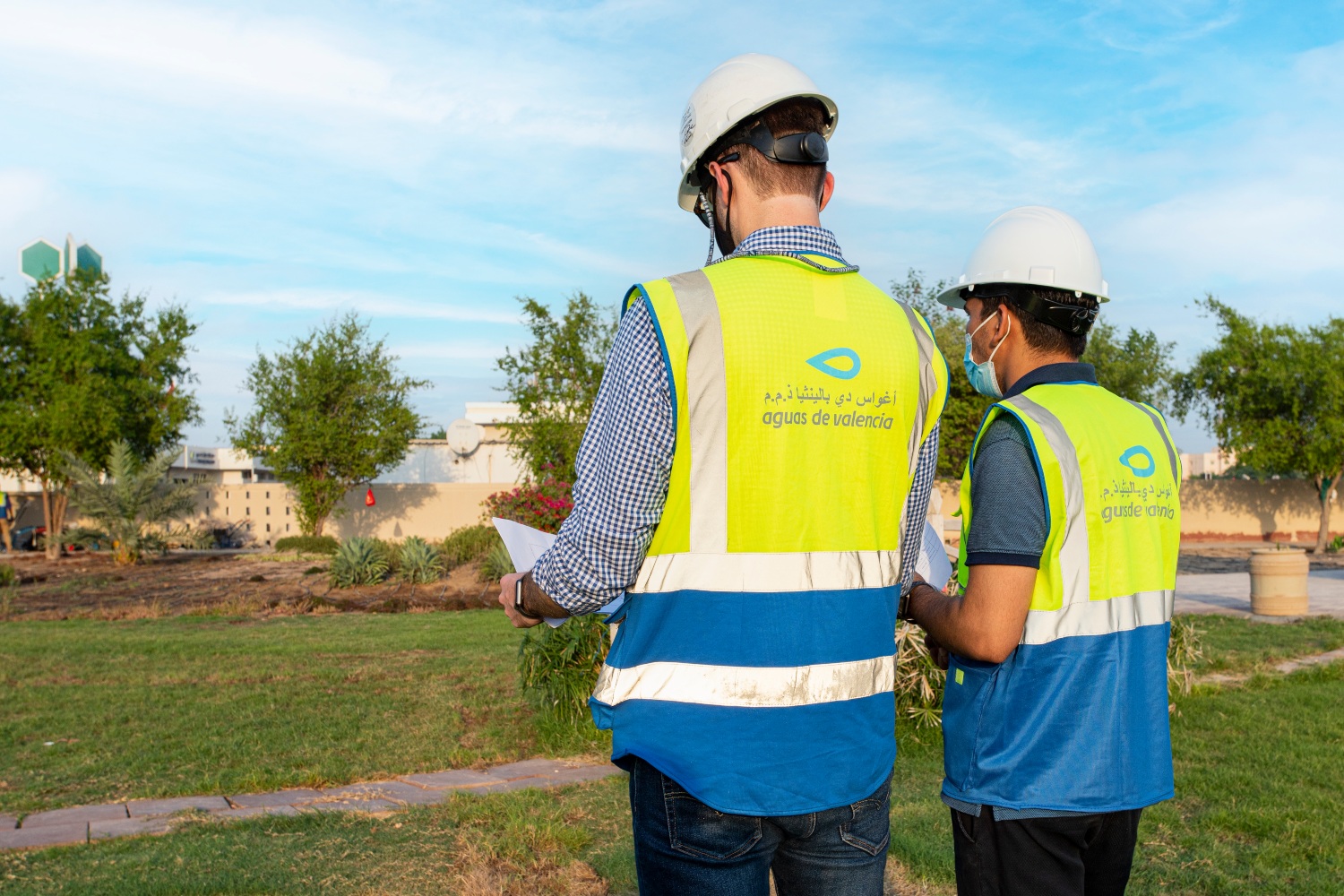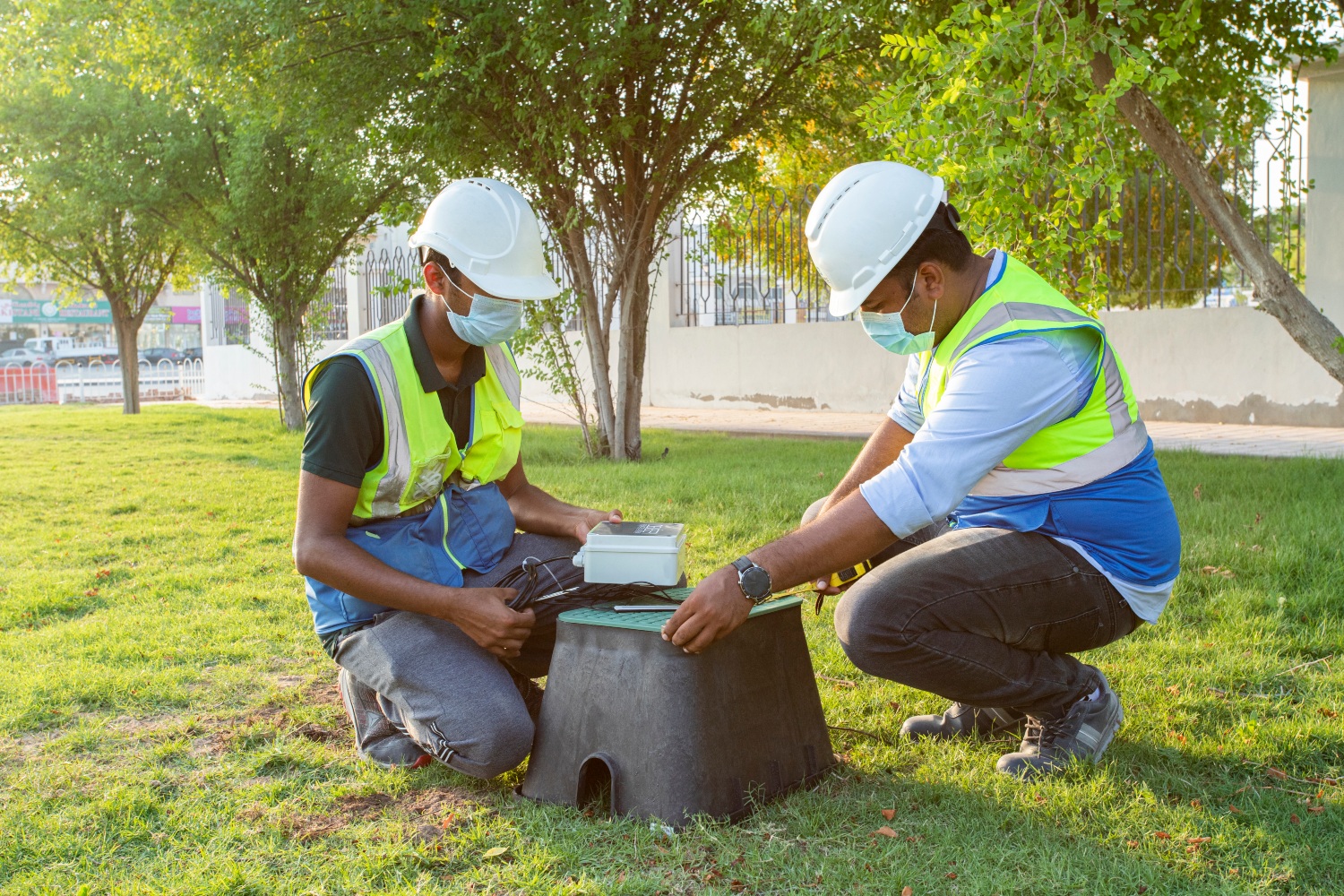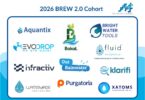
The small gulf state of Qatar is one of the richest countries in the world, largely thanks to its huge natural gas reserves. But despite this wealth, the country is completely devoid of surface water resources – no rivers, no lakes, no wetlands.
One of the driest countries on the planet, Qatar relies on desalination (61%), groundwater (24%) and reuse of treated sewage effluent (15%) to meet the needs of its approximately 2.8 million residents.
In some cases water is being consumed faster than it can be replenished (total water production more than quadrupled between 1990 and 2019), which has urged the Qatari government to come up with innovative ways to improve water sustainability.
One area of particular concern was water wastage in the gardens of the capital city, Doha, with tests revealing that most of the city’s parks were over-consuming.
To solve this problem, the local water authority turned to a smart irrigation technology platform provided by digital transformation specialist, Idrica.
Idrica’s GoAigua solution provides centralised control and management of the irrigation infrastructures and assets of Qatar. It uses an artificial intelligence (AI) algorithm that determines an optimal irrigation plan for the gardens – saving precious water.
Smart irrigation technology
Smart irrigation technology uses weather data and/or soil moisture data to determine the irrigation needs of a landscape or garden.
Idrica takes this a step further by gathering all relevant data in real-time and integrating it onto the GoAigua smart water platform.
The GoAigua Smart Green solution, implemented by Idrica, has advanced water efficiency algorithms that accurately calculate the precise amount of water required as well as the optimal watering frequency for a specific garden.
The platform also facilitates decision-making processes by collating all the information onto a single management platform.
This can significantly reduce reaction times and, through the use of a customisable set of alarms, makes it possible to automatically generate work orders in case of an urgent event such as a leak.
In essence, the technological platform fully automates the irrigation process.
Before the smart irrigation network could be adopted successfully, Idrica (Aguas de Valencia – Qatar) had to carry out some preliminary consulting and engineering tasks due to the low digitisation of the existing infrastructures in Qatar’s gardens.
Prior digitisation of the irrigation infrastructure, such as the hydraulic network and its assets, must be sensorised which requires a fairly significant initial investment. Operations and maintenance teams must also be equipped with knowledge and skills to successfully manage these systems.

Staff at Idrica (Aguas de Valencia – Qatar) monitor the gardens at Doha, Qatar.
In the gardens of Qatar, the system could only be implemented effectively once Idrica had identified existing digital deficiencies and implemented all the necessary instrumentation.
But once this foundation is laid, the benefits of smart irrigation systems far exceed the initial outlay. These remote-controlled, centralised systems allow for greater hydraulic efficiency and the increased lifespan of assets such as pumps and pipes. But perhaps the greatest benefit is saving water.
Especially in arid regions like Qatar that are experiencing the full impacts of climate change, creating automated irrigation systems through smart sensors and AI is the most sustainable long-term solution.
Climate smart cities
Qatar’s latest climate plan acknowledges the country’s vulnerability to rising sea levels, droughts, and dust storms as a result of climate change.
These climatic changes, coupled with rising consumption, place increased pressure on Qatar’s scarce water resources.
As it prepares to host the FIFA World Cup 2022, it is particularly important to counteract the impacts of water consumption as millions flock to the country later this year.
According to government statistics, by early 2020, 500,000m2 of turf, 5,000 trees and 80,000 shrubs had been planted in stadium precincts and public spaces in preparation for the games.
As part of its World Cup sustainability strategy, 75% of all these plants are native, drought resistant species and all landscapes are irrigated with 100% recycled water.
These measures, combined with the smart irrigation platform, are helping to build climate resilience – not just for the tournament but for future generations.
The implementation of these technologies fits with Qatar’s ambition to become a ‘smart city’. These are cities that promote sustainable urban development and embrace Information and Communication Technologies (ICT) in the management and provision of services.
Smart cities use data and digital technology to make better decisions and improve quality of life. More comprehensive, real-time data gives cities the ability to watch events as they unfold, understand how demand patterns are changing, and respond with faster and lower-cost solutions.
Smart irrigation is one solution that can make the management of our cities more water-wise and thus more environmentally, economically and socially sustainable.
Going forward, Idrica sees huge potential in the irrigation systems field. With its smart irrigation platform, the company aims to control the whole cycle of irrigation in smart cities as well as in agriculture.
Read more Idrica Articles and News on H2O Global News. Do you have an article or video that you would like to share? Submit your article here or keep up with the latest news from the water industry and wastewater industry by subscribing to our weekly newsletter







